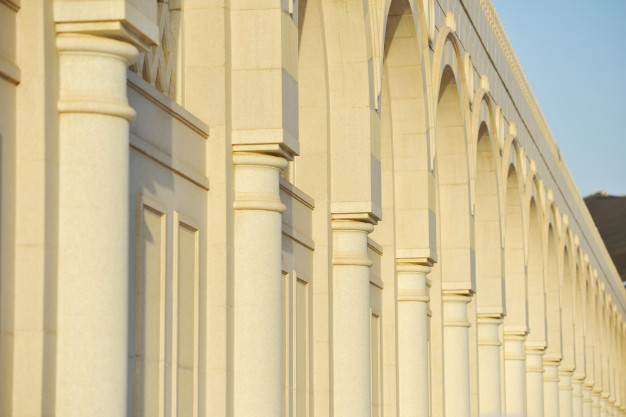Islam is based on five pillars that the Messenger (peace and blessings of Allaah be upon him) has explained for us.
1. Shahadah
The term Shahadah means a declaration of one’s faith; a testament to your belief that there is no God but Allah SWT and Prophet Muhammad (PBUH) is His Messenger – an intentional declaration that you are a Muslim and a true follower of Islam. This is the most important pillar as it is your initial submission to Islam. The Shahadah is also the first act of submission carried out by reverts to Islam as a commitment and declaration of their faith. The declaration should be recited sincerely three times with full and pure intention.
2. Salah
Salah means daily prayer; a Muslim’s day consists of five obligatory prayers per day. The five set prayers are Fajr, Dhuhr, Asr, Maghrib and Isha. The times for each prayer vary according to the lunar calendar as they range from sunrise to midnight.
Prior to the act of salah, Muslims must perform wudhu (ablution) which is a washing ritual to ensure purity prior to standing before the Lord.
The adhan (call to prayer) announces the set time for the prayers and is usually recited at Mosques, but can also be recited at home at the exact time prior to performing the daily prayer.
3. Zakat
Zakat means charity. A Muslim must share his or her wealth to those less fortunate by contributing 2.5% of their profitable wealth (gold, silver and cash) to charity each and every year.
It is important to acknowledge that nothing we acquire in this world is truly ours as nothing that we have will be buried with us, nor will it be used in our Hereafter. Therefore, it is our good deeds and those who we helped with our world-given wealth that will help us in seeking Jannah (Heaven) in our Hereafter.
What we have in this world is just material objects – possessions which we can use to help others in order to enhance our journey to Heaven instead of holding on with greed – a worldly test.
4. Fasting
Fasting during Ramadan entails discipline and abstaining from many things, such as food, drink (including water), medication, any acts of evil, any sexual activity, backbiting, harming oneself or others, smoking, intoxication, impure thoughts and so forth. The key objective of a fast is to instil purity of the mind, body and soul.
The fast begins just before sunrise and ends at sunset, so the length of the fast depends on which season it falls in. The morning meal, which is to be consumed before sunrise, is called suhoor and the evening meal, which is to be consumed at sunset, is called iftar.
5. Hajj
The pilgrimage of Hajj occurs annually and is a time where Muslims around the world circle the Holy Ka’aba in Makkah in congregation to worship Allah SWT. The pilgrimage is carried out in plain white, identical clothing, also known as the Ihram. One significance of the ihram is to promote unity in Islam and remind us that no matter what ethnicity, age, status or race, we are all equal in the eyes of Allah SWT.
Hajj takes place during the twelfth month of the Islamic calendar, in Dhul-Hijjah, and is a journey that every able Muslim should aim to take at least once in their lifetime.

Categories:
Tags:

Comments are closed